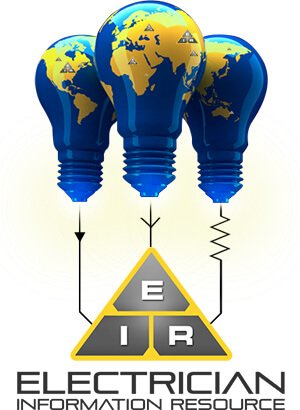Electrician Training in Delaware | How To Become An Electrician

Are you looking for electrician training in Delaware? Do you want to live a good life and retire wealthy? If so you are in the right place.
The electrician market in Delaware is growing at a rate of 18.3% and this will be sustained until the year 2024. As an independent contractor, you will be able to bid on lucrative government projects that will changes your fortunes forever. Depending on your specialization and experience, you can earn a minimum wage of $98,900. If you register your own business the earning potential could be tenfold in a year.
This is because you can scale and work on multi-million dollar projects with higher profit margins. Let us compare this with other job segments in the country.
- HVAC: $51,400
- Carpenter: $45,000
- Occupants in DE: $49,520
- Construction Laborers: $34,000
From the comparison above, it is clear that being an electrician will guarantee you a bigger house and a comfortable retirement.
The Board of Electrical Examiners
Before we start this exciting journey on how you will gain your Journeyman license, let us discuss the Delaware Board of Electrical Examiners. It is through this board that all practicing and aspiring electricians get their licenses. The board is under the Division of Professional Regulation and it has the following objectives and functions;
- Protect the public from a monopolistic market
- Protect the public from unsafe practices by electricians
- Protect the public from price-fixing
- Maintain professionalism in the industry
- To enforce regulations and Rules
- Impose disciplinary measures on professionals if necessary
- Issue and revoke licenses
The Board of Electrical Examiners offers the following licenses;
- Journeyman licenses
- Master Electrician license
- Master Electrician special license
- Limited Electrician license
- Limited Electrician special license
Note: Electrical inspection agencies are also inspected by the board.
1. Gaining the Experience Required to Become a Journeyman
For the board of electrical examiners to consider your application for a license, you must meet the following requirements;
- Have completed an apprenticeship program
- Have a job experience of 4 years {8,000} hours
There are several ways in which you can meet these requirements;
- Joining a trade school
- Joining a non-union training Program
- Joining a union electrician training program
Electrician Training in Delaware through a Technical School
A technical school will confer you with a degree in Associate of Applied Science in Electrical Technology. If you do not have any prior experience with electrical concepts, this is the best strategy for becoming an electrician. It is also ideal for beginners because it is lab-based with a combination of both theoretical and practical concepts.
Since enrolling in a technical school will still require you to gain 8,000 hours of on the job experience, most schools have a field training program that connects you to registered electrical contractors. If you are lucky then you can earn on the job.
Expect an annual salary of $38,870 which is a good salary by Delaware standards as it is 10% above the national average. If your school does not have an apprenticeship program you can search for one yourself through a non-union or union board.
To join this program or find the best electrician schools in your area let us know.
Here are some of the companies that are always looking for new hires;
- The Supreme Electrical Company
- White Clay Electrical Services
- All-Pro Electric
Electrical Training in Delaware Through a non-union Apprenticeship Program
A non-union electrician training in Deleware program is where you are placed in a non-union shop for training. The application process and placement is the same as that of a union program. The difference is that the shop is not a member of a union.
Electrician School in Delaware through a Union Apprenticeship Program
Unionized apprentices are given out through the Joint Apprenticeship &Training Committee which was formed through the collaboration of the National Electrical Contractors Association {NECA} and the International Brotherhood of Electrical Workers {IBEW}.
The following requirements must be met to be eligible to join a union apprenticeship program;
- Must pass an aptitude test
- Must possess high school transcripts
- Must have a high school diploma
- Must be 18 years or older
Union vs Non – Union, Which Is Better?
Though both unions are recognized by the Delaware board, the main difference is the pay. If you join a union program, your payment has been negotiated by the union based on the prevailing wage level. As a union electrician, expect to get a pay of $56,000 – $71,100 per year.
If you join a non-union program, keep in mind that your wages have not been negotiated and the shop will pay you based on the market price. This means if nearby shops pay their electricians $30 per hour expect to be paid $30 per hour.
Apprenticeship License Fee
Applying for an apprenticeship license will cost you $59. Your application must also have a letter from your supervisor acknowledging that you are in an apprenticeship program.
2. Sitting and Passing a Journeyman Exam
After you have gained the required work experience, it is now time to put your training to the test. To help you better prepare for the test, we have a breakdown of the topics you should expect to be evaluated on. These topics are;
- Safety
- Wiring and Protection
- General Electrical Knowledge and Materials
- Communication systems
- Equipment for general use
- Special Conditions
- Special Equipment
- Special Occupancies
Hint: Based on past exams, 25% of the questions are on wiring and Protection, 20% on general equipment and another 20% on wiring methods and materials. The exam is 3 hours long with 80 multiple-choice questions. To qualify for this exam, you must meet the following requirements;
- Prove that you are above 20 years of age
- Have more than 8,000 hours of work experience or have completed an apprenticeship training.
- Must get a pass mark of 75 % or above
- Complete the application form and submit supporting documents
Once you become a journeyman, your electrical training in Delaware must continue as it is one of the requirements by the electrical board to renew your license. As a journeyman, expect to get an hourly wage of $27.97.
3. Acquiring a Master Electrician License
Who is a Master Electrician?
A master electrician is a person licensed by the electricity board of Delaware to plan, supervise, estimate or repair electrical equipment. As a master electrician, you will be able to install or work on the following Units;
- Elevators
- Swimming pool heaters
- Oil burners
- Heating systems
- Refrigerators
- Undergrounds heating systems
- Overhead heating systems
The following requirements must be met to get a master electrician license. These are;
- Filling out an application form and attaching all the required documents
- Have worked for a master electrician for at least six years
- If you have a degree in applied electrical technology, you must have four years of experience working full time
More about a Master Electrician Exam
A master electrician exam is a multiple-choice exam with 100 questions. The exam is an open exam and the time frame to complete it is four hours. You are allowed to refer to organizations such as the OSHA Construction Industry and also to the 2014 National Electric Code.
We have broken down some of the topics that are most likely to be evaluated. These are:
- General Electric Knowledge
- Equipment and General use
- Wiring and Protection
- Special occupancies
- Safety
- Communication systems
- Special Equipment
- Wiring methods and material
Most of the questions will be on wiring and protection which will be 22% of the exam, followed by wiring methods and materials at 20%.
How Much Can I earn?
As a master electrician, your average salary in Delaware will be around $64,460. It is, however, important to note that other factors will indirectly contribute to your annual wage. These factors are experience level and specialization.
Three Reasons to Become a Master Electrician?
Professional Pride
As a master electrician, your electrician training in Delaware makes you an expert in your field. As you expand on your knowledge so will your peers admire you and with it comes professional pride knowing that you have a skill that journeymen are yet to attain. Apart from the knowledge you have earned over the years, you will also feel proud supervising journeymen instead of being supervised.
Higher Standards of Living
It is no brainer that your salary is directly related to the level of your electrician training. The more skilled you are the better as you command a premium in the job market. While a Journeyman commands $22 an hour, a master electrician in Delaware commands up to $35 an hour.
The pay is also subject to other external factors such as;
- Demand: This is the law of demand and supply. If you are in an area with plenty of master electricians then the demand for your service will drop and the cost charged will fall.
- Niche/ Specialization: Some industries are more lucrative than others and this pushes the price upwards. For example, it is more lucrative to be an electrical and power installer in Delaware than it is to be a security and fire alarm installer. This is because, as a power installer you get an annual salary of $74,690 – $98,300 depending on your local area.
Professional Respect
Becoming a master electrician is not a walk in the park. It is not difficult but you will have to be dedicated to the course. Prospective clients will always consider your electrician training superior to that of a journeyman and your opinions will always be respected by clients. They will also be willing to make adjustments based on your opinion.
4. Acquiring an Independent Contractor License
This the last step to becoming an independent electrical contractor. All your years of electrician training has brought you to this point. In Delaware, there are two types of contractor licenses. These are;
- Residential Contractor License
- Non-residential Contractor License
The only difference between the two licenses is the area of operation. A residential contractor license allows you to operate in Delaware, while a non-residential contractor license authorizes you to operate outside Delaware but not in Delaware. The license depends on your needs and interests.
An independent license allows you to open your own business and hire master electricians to work for you. With this license, you can bid for government tenders and the only limitation is your imagination.
Unlike a journeyman and a master electrician license, a contractor license is issued by the Delaware Division of Revenue.
To apply for a contractor license you must fill a CRA form and meet insurance obligations.
5. Salary and Job Outlook
According to the Department of Labor, 64 electrician jobs will be needed every year until 2022. The demand in electrician training is as a result of a construction boom expected to last till 2022.
Speciality Salaries in Wilmington
- Motor Vehicle Electrical Electricians: $30,900 - $47,800
- Power line Installers and Repairers: $83,800 - $98,100
- Powerhouse and Substation Electricians: $$74,500 - $93,650
- Electronic Equipment Repairers and Installers: $36,500 - $54,900
- Commercial and Industrial Equipment Electricians: $69,600 - $78,900
- Fire Alarm and Systems Installers: $47,110 - $59,550
Speciality Salaries in Dover
- Security and Fire Alarm Installers: $45,000 – $67,800
Average Electrician Salaries in Delaware
- Fire Alarm and Systems Controller: $48,990
- Commercial and Industrial Equipment Electricians: $64,500
- Power line Installers and Repairers: $74,700
- Motor vehicle Electricians: $35,000








